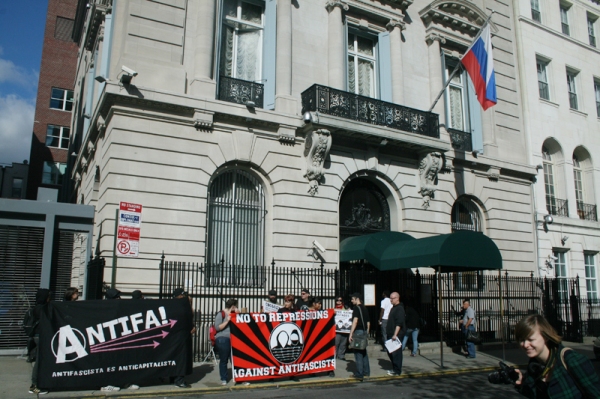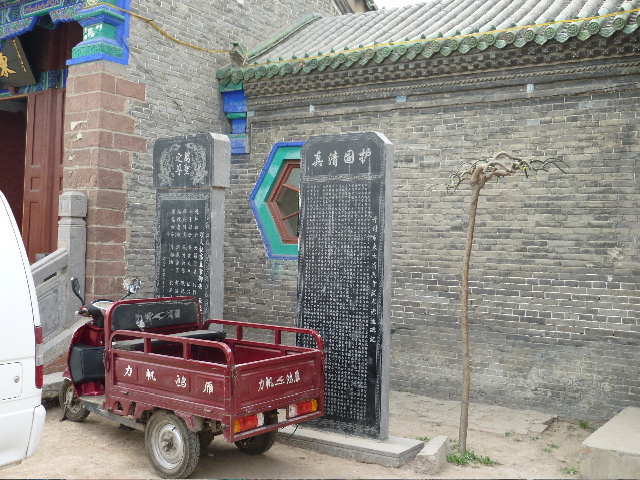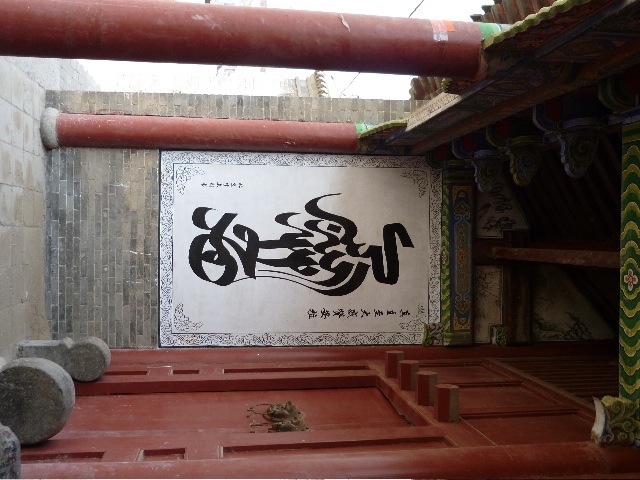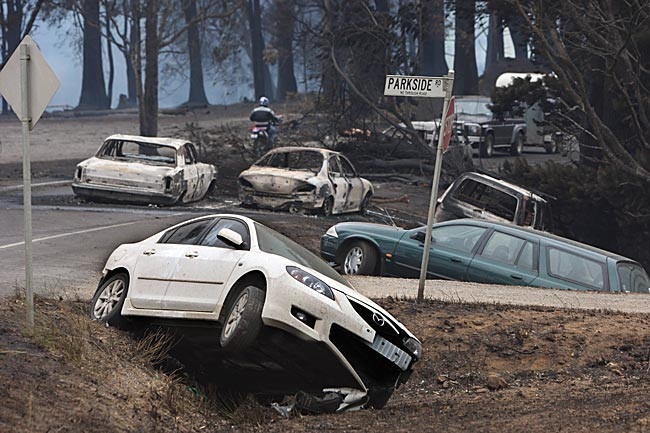Sudan and South Sudan strike oil deal —but border disputes remain
South Sudan and Sudan announced a deal on the south’s access to Khartoum’s oil pipelines—but it is contingent on further talks over disputed border enclaves.
South Sudan and Sudan announced a deal on the south’s access to Khartoum’s oil pipelines—but it is contingent on further talks over disputed border enclaves.
A Chinese proposal for a pipeline route across northern Afghanistan for Caspian Basin gas could sabotage the US-backed Turkmenistan-Afghanistan-Pakistan-India (TAPI) project.

An indigenous environmental activist was killed in Mexico's south-central state of Morelos, three days ahead of a planned referendum on an energy development project that he opposed. Samir Flores Soberanes was a leader of the local Peoples in Defense of Land and Water Front and community radio station Amilzinko. He was slain by unknown gunmen in an attack at his home in the village of Amilcingo, Temoac municipality. He was a longtime figure in local opposition to the planned Huexca power plant and associated natural-gas pipeline, pushed by the government under the Morelos Integral Project. (Photo: Somos el Medio)

Lizardo Cauper, president of Peru's alliance of Amazonian peoples, AIDESEP, issued an urgent call for authorities to open dialogue with indigenous communities in the northern region of Loreto rather than militarizing the area in response to mounting social conflicts and attacks on the North Peruvian Pipeline. Noting that the aging pipeline is in chronic disrepair, with repeated spills contaminating the rainforest, Cauper said: "We have made a call that, in place of militarization, they put in place a new pipeline. But it is not enough to have a new pipeline, but to respond to the demands of the people who are living around these oil activities." Regional authorities have called upon Lima to declare a state of emergency in response to paralysis of the pipeline, which delivers crude from rainforest oilfields over the Andes. (Photo: Andina)

World oil prices remain depressed despite an uptick this month, driven by the Venezuela crisis and fear of US-China trade war. Yet this month also saw Zimbabwe explode into angry protests over fuel prices. The unrest was sparked when the government doubled prices, in an effort to crack down on "rampant" illegal trading. Simultaneously, long lines at gas stations are reported across Mexico—again due to a crackdown on illegal petrol trafficking. Despite all the talk in recent years about how low oil prices are now permanent (mirrored, of course, in the similar talk 10 years ago about how high prices were permanent), the crises in Zimbabwe and Mexico may be harbingers of a coming global shock. (Photo via Amnesty International)

The export of oil from northern Iraq's contested enclave of Kirkuk is to resume under a deal struck between Baghdad and the Kurdistan Regional Government (KRG), Iraq's Ministry of Oil announced. With Baghdad's Kirkuk-Ceyhan pipeline disabled during fighting with ISIS, the so-called KRG pipeline is currently the only method of delivering Kirkuk oil to foreign markets other than through Iran. That route has now also been cut off by the resumption of US sanctions against the Islamic Republic. But Baghdad and the KRG have long been at odds over terms, and the situation was worsened with the central government's seizure last year of Kirkuk and its oil-fields, which had been in Kurdish hands since the KRG routed ISIS from the enclave in 2014. US National Security Advisor John Bolton welcomed the agreement between Baghdad and the KRG as a "promising first step to return to 2017 levels." The KRG pipeline is jointly owned by the Erbil-based KRG, BP and Russia's Rosneft. (Photo via Iraqi News Agency)

In Episode 17 of the CounterVortex podcast, Bill Weinberg discusses growing repression against the Tatar people of the Crimea, and the abrogation of their autonomous government by the Russian authorities since Moscow's illegal annexation of the peninsula. This is a clear parallel to violation of the territorial rights of the Lakota people in the United States through construction of the Dakota Access Pipeline, and the legal persecution of indigenous leaders who stood against it. The parallel is even clearer in the cases of the Evenks and Telengit, indigenous peoples of Siberia, resisting Russian construction of pipelines through their traditional lands. Yet the US State Department's Radio Free Europe aggressively covers the Tatar struggle, while Kremlin propaganda organ Russia Today (RT) aggressively covered the Dakota Access protests. Indigenous struggles are exploited in the propaganda game played by the rival superpowers. It is imperative that indigenous peoples and their allies overcome the divide-and-rule game and build solidarity across borders and influence spheres. Listen on SoundCloud, and support our podcast via Patreon.
A suicide bomber killed at least 130 at a campaign rally in Pakistan's Balochistan province— the deadliest attack in the country since 2014. A local candidate with the Balochistan Awami Party was among the dead. The local franchise of the Islamic State took credit for the attack. Radio Free Europe portrays the BAP as part of the Pakistani military establishment’s plan to undermine Baluch ethno-nationalist groups. Balochistan province is part of the larger region of Baluchistan, homeland of the Baluch people, long divided between Iran, Pakistan and Afghanistan. There are movements for Baluch independence in each of these countries, but they have been unable to unite across the nation-state boundaries. The attack may point to an ISIS strategy to disrupt electoral ethno-nationalist initiatives, and co-opt the Baluch struggle across all three borders, wedding it to Sunni extremism. (Map via Atheer)
Bashar Assad arrived in Russia to publicly thank Vladimir Putin for his military support in the ongoing re-conquest of Syria—prominently including the deployment of new missile systems. Undoubtedly discussed behind closed doors was the new "energy cooperation framework agreement" between Moscow and Damascus, under which Russia is to have exclusive rights to exploit oil and gas in Syria. (Photo of Vityaz missile launcher via Wikipedia)

Egypt's chief prosecutor referred 555 individuals suspected of joining a local ISIS affiliate to military court. The charges against them arise out of a series of attacks carried out by dozens of small militant groups situated in the northern part of the Sinai Peninsula. The suspects will faces charges for the planned and executed killings of security personnel, attacks on military checkpoints, and the destruction of a gas pipeline between Egypt and Jordan. The charges come amid growing concerns over torture, lengthy solitary confinement and other rights abuses in Egypt's prisons. (Photo: Egypt Daily News)
Seemingly irregular oil contracts have emerged as a factor in the ongoing political scandal that last week brought down Peru's president Pedro Pablo Kuczynski. Following accusations from left-opposition congressmembers, state agency PeruPetro admitted that hours before leaving office, Kuczynski had issued a Supreme Decree initiating the process of approving five offshore oil concessions with a private company—but without the involvement of PeruPetro in vetting the contracts, as required by law. Calling the deals "lobista," Dammert is demanding that new President Martín Vizcarra declare the contracts void. (Photo: Gestión)

Legal proceedings continue in Bagua, a town on the edge of the rainforest in Peru's Amazonas region, against 25 Awajún and Wampis indigenous activists over deadly violence at a pumping station for the North Peru Oilduct in June 2009. Station 6 had at that time been under occupation by indigenous activists opposed to expansion of oil operations into their Amazonian homelands. Violence broke out at the occupied pumping station on June 5, 2009, when word reached the activists there of that morning's Bagua massacre, precipitated by National Police attacking an indigenous roadblock. Ten agents of DINOES, the National Police elite anti-riot force, were slain in the clash at Station 6. Prominent indigenous leader Alberto Pizango, already cleared of charges connected to the violence at Bagua, is now among those being tried for the bloodshed at Station 6. (Photo: Radio Reina de la Selva)